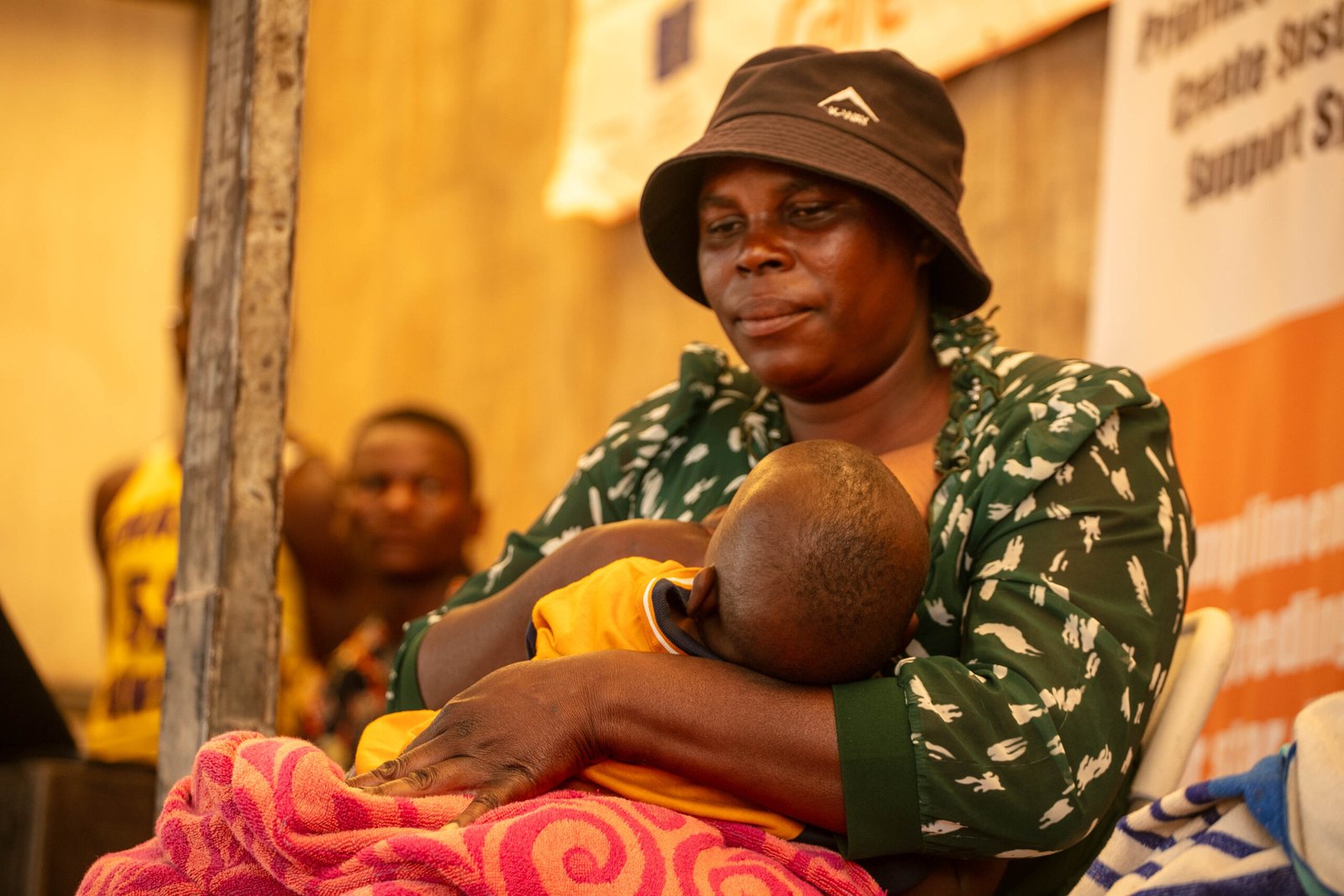NEMBUDZIYA, Zimbabwe: In an effort to promote infant health and dispel persistent myths, Nutrition Action Zimbabwe, working alongside the Ministry of Health and Child Care and other development partners marked World Breastfeeding Week with a series of events in rural districts, drawing hundreds of participants and igniting conversations about a practice many experts say is critical to both child and maternal well-being.

The commemorations, held in Gokwe North’s Nembudziya and Zumba townships, were part of a global campaign running from August 1 to 7. This year’s theme, “Prioritize Breastfeeding: Create a Sustainable Support System,” sought to reframe breastfeeding as not only a nutritional necessity but also a public health imperative that depends on community-wide support.
“Breast milk is the gold standard because it contains nutrients in the correct composition necessary for a baby’s growth,” said Jaine Mapingire, a district nutritionist, addressing the media in Nembudziya. “It’s readily available, requires no preparation, and comes at no financial cost. Mothers must make it their first choice.”
Her remarks reflected a growing global consensus: the World Health Organization recommends exclusive breastfeeding for the first six months of life, followed by continued breastfeeding alongside complementary foods for up to two years or beyond. In Zimbabwe, however, health officials say misinformation still undermines those recommendations, especially in rural communities.
For some attendees, the event offered revelations that went beyond infant nutrition. “I learned that breastfeeding is not only important for the child but also reduces our risk of developing cervical and breast cancer,” said Lindiwe Mapute, a mother from Gokwe rural.
According to research, breastfeeding has been linked to a reduced risk of certain cancers, lower rates of postpartum depression, and faster postpartum recovery. For infants, it provides antibodies that protect against infections, reduces the likelihood of malnutrition, and supports healthy brain development.
In much of rural Zimbabwe, misconceptions about breastfeeding from beliefs that colostrum is harmful to assumptions that formula is superior persist. Health officials say these myths can lead to delayed breastfeeding initiation, shortened breastfeeding duration, or unnecessary reliance on costly and sometimes unsafe formula feeding.
“Having these commemorations in rural communities like Nembudziya ensures people receive accurate, life-saving information,” said Christopher Mandima, an environmental health officer. “We have a lot of myths and misconceptions here, and this is how we fight them. We want to acknowledge our partners for helping us bring these messages directly to the people.”
Mapingire added that the Ministry of Health is partnering with village leaders, traditional chiefs, and local health workers to reinforce accurate information year-round. “The commemorations are a stepping stone,” she said. “The goal is a society where breastfeeding is the norm, and where mothers feel supported to do it for as long as needed.”
World Breastfeeding Week, first celebrated in 1992, is now observed in more than 120 countries.The week is coordinated globally by the World Alliance for Breastfeeding Action in partnership with UNICEF and the World Health Organization.
In Gokwe North, the commemorations drew more than 250 people in Nembudziya and over 100 in Zumba township, with participants traveling from outlying villages to hear health talks, watch demonstrations, and take part in question-and-answer sessions. Organizers say the turnout signals a growing willingness among rural families to engage with health education a shift they hope will translate into higher breastfeeding rates and healthier communities.